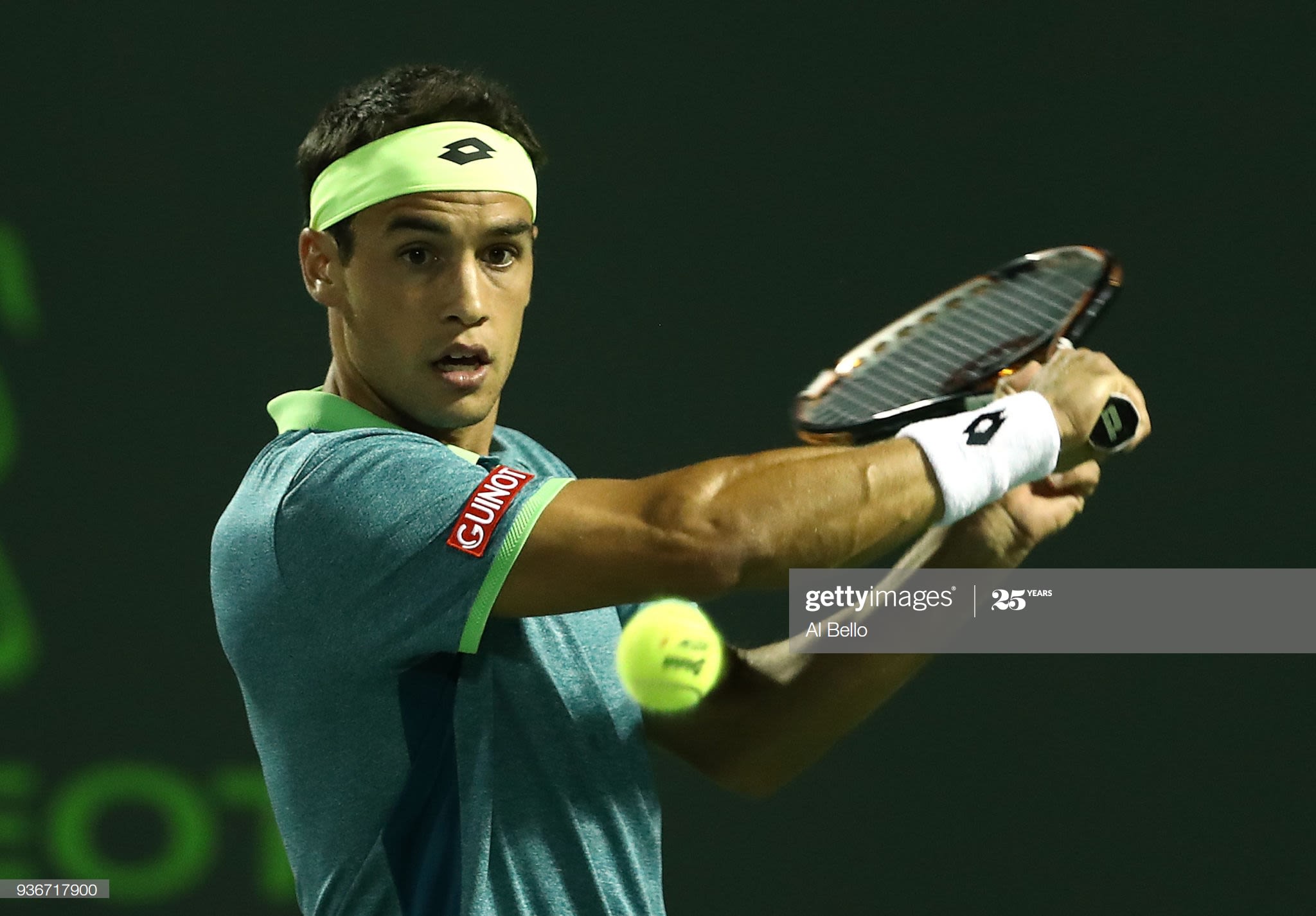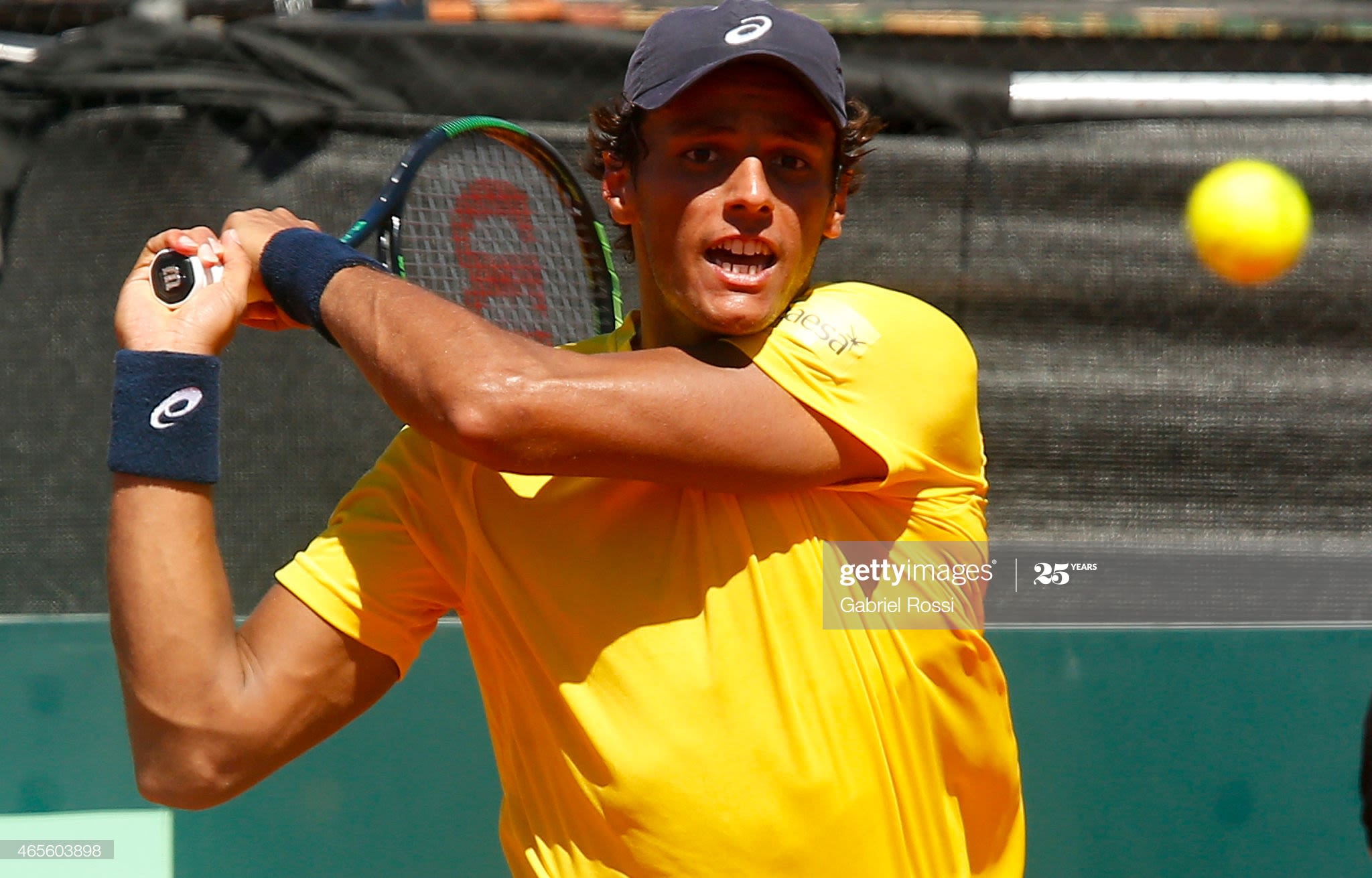The Baseline - Investigating Five of Tennis's Biggest Talking Points
Part 2 - Match-Fixing

Part Two of The Baseline investigates the prominence of match-fixing in tennis, and if the situation is improving.
What is being done to fight corruption? And could tennis’s governing bodies still do more?
“There will always be match-fixing in tennis. If you were going to pick a sport to fix, tennis is ideal - you only need one player,” says John Templon, an award-winning data reporter behind the BuzzFeed News/BBC match-fixing investigation that shook the tennis world in 2016.
The lifetime ban given to Brazilian player Joao Souza for match-fixing by the Tennis Integrity Unit (TIU) in January brought betting-related corruption in tennis into the public eye once again.
Despite career-ending sanctions like this, and recent changes to the TIU, tennis is still the number one sport in terms of number of suspicious betting alerts - with some claiming it is not just a problem at lower levels.
While there is a sense the situation is improving, questions remain as to whether the TIU and tennis's other governing bodies are doing enough to fight the problem.
As well as the lifetime ban, 31-year-old Brazilian, Souza – who had a career-high singles ranking of 69 – was fined $200,000. His offences included match-fixing at ATP Challenger and ITF Futures tournaments, failure to report corrupt approaches, failure to co-operate fully with the TIU – including destroying evidence – and soliciting other players to not use best efforts.

Joao Souza in action for Brazil against Leonardo Mayer of Argentina in the 2015 Davis Cup. Mayer beat Souza 7-6 (7-4) 7-6 (7-5) 5-7 5-7 15-13 in a six-hour, 43-minute marathon - the longest singles match in Davis Cup history. (Photo by Gabriel Rossi/Getty Images)
Joao Souza in action for Brazil against Leonardo Mayer of Argentina in the 2015 Davis Cup. Mayer beat Souza 7-6 (7-4) 7-6 (7-5) 5-7 5-7 15-13 in a six-hour, 43-minute marathon - the longest singles match in Davis Cup history. (Photo by Gabriel Rossi/Getty Images)
Former world number 78 Nicolas Kicker is another notable case, having been handed a six-year ban (including three years suspended on the basis he commits no further breaches) in June 2018 for contriving the outcome of ATP Challenger matches in Padova, Italy and Barranquilla, Colombia - in 2015.
In 2019, 21 male players were subject to disciplinary action by the TIU, compared to just five female players - suggesting betting-related corruption is more prominent in men’s tennis.
In addition, 65 suspicious matches on the ITF Men’s Tour were reported to the TIU, in contrast to 34 on the ITF Women’s Tour. These match alerts, though, are not necessarily indicative of any wrongdoing.
BuzzFeed News journalist Templon analysed betting data from 26,000 professional men’s tennis matches from 2009 to 2015 for the aforementioned investigation. Leaked documents also revealed that Russian and Italian gambling syndicates made hundreds of thousands of pounds through suspected match-fixing.
He identified 15 players who consistently lost matches in which the odds shifted significantly - seemingly as a result of heavy and suspiciously lopsided betting. The list included Grand Slam champions in singles and doubles.
The players were not named because - while these patterns are a red flag for possible match-fixing - it cannot be proven definitively without access to evidence such as phone and bank records.
Templon says: “Tennis has tried to insist that match-fixing is only at the lower levels and that is not the case.
“What we found most surprising was the number of top players that had been involved in match-fixing at some point of their careers, and just how pervasive it was, and how little tennis was doing to combat it at the time. The enforcement mechanisms in place and the TIU’s work were pretty inadequate for the situation.
“Generally, match-fixing arises in communities of players. One player can’t fix enough matches by themselves to keep the people they are now tied to happy, and they approach other players.
“It is also a particularly ripe opportunity for organised crime to make money.”
Diarmaid Harkin, Senior Lecturer in Criminology at Deakin University, explains why match-fixing is particularly prevalent at lower levels: “The imbalance between the low-pay at the lower levels and the large amounts gambled online for low-ranking matches creates a situation that is vulnerable to corruption.
“Often, more money can be made for corrupt behaviour in the short-run rather than actually winning certain low-level matches, or even whole tournaments.”
Despite tennis being the sport with the most suspicious betting alerts, almost 48% fewer matches were reported to the TIU last year than in 2018. (Source: tennisintegrityunit.com)
Templon does, though, believe the situation is improving and that considerable strides have been made since the investigation: “It’s gotten a lot better since then – they (The TIU) have put a lot of resources into it.
“The TIU continues to insist that they can’t bring charges based on data alone, which I would dispute, but they are looking at that data and taking it seriously - which is something I do not think they were doing four years ago.
“My general feeling is that the TIU is now well-funded and supported and they have been given the mandate to fix the sport.”
A driving force behind this improvement was the 2018 report by the Independent Review of Integrity in Tennis. The Independent Review Panel (IRP) recommended a number of structural and governance changes to the way the TIU is organised and operates.
Mark Harrison, TIU Head of Communications, explains: “In response to this, the governing bodies of the sport appointed Jennie Price CBE as the independent chair of the Tennis Integrity Supervisory Board in February 2019. She was joined on the Board by four additional independent members. Jonny Gray was announced as the first CEO of the TIU and will take up the post in February 2020.”
More “independent oversight” is something Harkin believes the TIU will benefit from.
Harrison also stresses the significance of education in combatting match-fixing, and how the TIU are now addressing this: “Education is an absolutely critical function for the TIU and this was reinforced by the recruitment of a team of three dedicated education officers in 2018.
Nicolas Kicker reflects on his match-fixing ban. (Video by TIU Education)
“They are responsible for the regular updating of the mandatory online programme that all players are required to complete every two years. There are many other education initiatives and materials targeted at players, officials, coaches and tournament personnel.”
Despite these improvements, could more still be done?
Templon believes that if the TIU “talked publicly about their enforcement action”, it would be a “deterrent”. Similarly, Harkin argues “more transparency would boost the legitimacy of the TIU.”
Templon also questions the role of some of tennis’s other governing bodies: “Tennis Australia has been on the forefront of combatting match-fixing. Australian law really helps with that because they are able to prosecute people.
“But, some of the other national organisations either want it to be the TIU’s problem or don’t want to deal with it.”
Here is the first part of the series:
